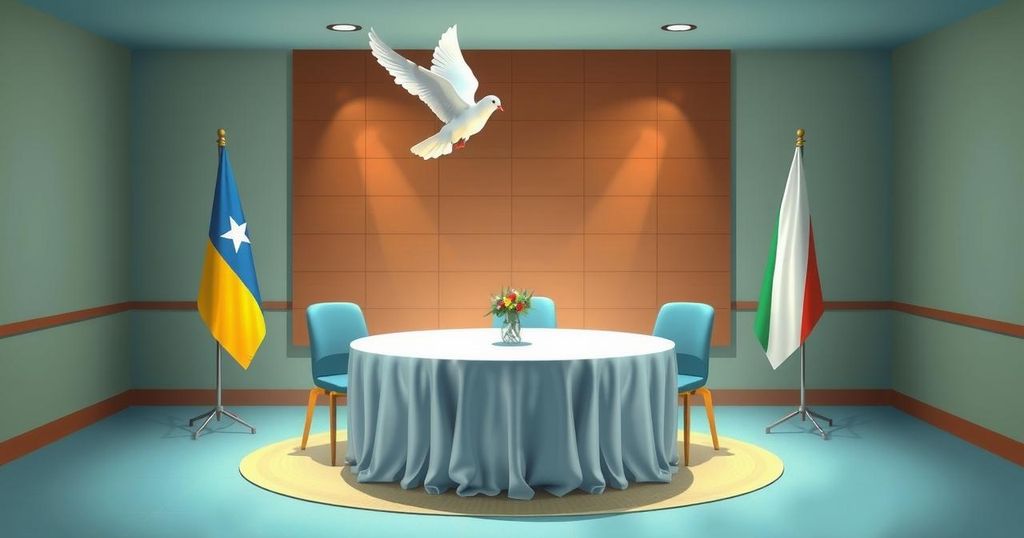The presidents of Rwanda and the DRC convened in Qatar for ceasefire talks following failed negotiations in Angola. They agreed on an immediate ceasefire and emphasized the need for direct political dialogue to resolve the ongoing conflict. Tensions persist due to the M23 group’s influence and international sanctions. A collaborative commitment is essential for establishing lasting peace in the region.
The presidents of Rwanda and the Democratic Republic of the Congo (DRC) convened unexpected ceasefire discussions in Qatar, following unsuccessful peace negotiations in Angola. Rwandan leader Paul Kagame and DRC President Felix Tshisekedi engaged in this dialogue with Qatar’s Emir Sheikh Tamim bin Hamad Al Thani. The statement released subsequently emphasized their mutual agreement on an immediate and unconditional ceasefire, as previously established in an African summit.
The meeting, described as “fruitful,” aimed to strengthen confidence in the ongoing commitment towards a stable and secure future for the DRC and its surrounding region. Furthermore, it highlighted the urgent necessity for “direct political dialogue” among all involved parties to address the core issues driving the conflict in Eastern DRC. Kagame communicated his optimism regarding cooperative efforts among the parties to expedite progress.
Confirmation of the meeting came from both administrations, although it was deliberately concealed until after Tshisekedi’s arrival in Kinshasa. The Congolese presidential spokesperson asserted via social media that an agreement for an immediate and unconditional ceasefire had been reached between the DRC and Rwanda, with implementation details to be elaborated in the upcoming days.
Previously, Angola had reported the cancellation of peace talks, as the M23 group withdrew their participation at the last moment, citing sabotage from certain international bodies, particularly in reference to sanctions enforced by the European Union. The group condemned what it termed Kinshasa’s “bellicose campaign,” declaring that such circumstances rendered discussions impossible.
Amid these developments, the European Union has imposed sanctions against several Rwandan military leaders supporting armed factions in Eastern DRC, including the M23. The group itself has rapidly advanced, taking control of significant cities such as Goma and Bukavu since January, resulting in over 7,000 fatalities according to DRC reports. However, this figure remains unverified by independent sources. A UN report claims Rwanda exerts control over the M23, purportedly supporting it with troops to exploit the region’s valuable resources. Although Rwanda denies military backing for the M23, it cites threats from the FDLR group, linked to the 1994 Rwandan genocide, as justification for its actions.
The last engagement between the Congolese government and the M23 prior to this latest initiative occurred in 2013.
In conclusion, the surprise ceasefire talks held by the presidents of Rwanda and the DRC in Qatar underscore a pivotal moment in the ongoing conflict. Their agreement on an immediate ceasefire reflects a collective intent for stability, despite the earlier setbacks in peace negotiations. Additionally, the political dynamics involving the M23 group and international sanctions further complicate the regional situation. The sincerity of efforts toward lasting peace remains contingent upon subsequent dialogues and collaborative actions among all stakeholders.
Original Source: www.hindustantimes.com






